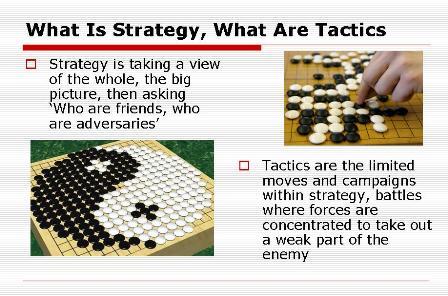 | Leonard Cohen
Democracy Is Coming |
|
Chicago: May 16-17
on Police Crimes
in defense of democracy and
to end racist and political repression
Featuring Angela Davis University of Chicago
International House1414 E. 59th St, Chicago IL 60637
|
 | |
Journal of the Black Left Unity Network
|
|

New CCDS Book Reporting on Vietnam
|
 The new annual edition of our journal of discussion and analysis is now out. More than 130 pages, it includes 20 articles on organizing, racism and the right. Cost is $10 plus shipping. Or get one by becoming a sustainer. Click the title to buy it directly. The new annual edition of our journal of discussion and analysis is now out. More than 130 pages, it includes 20 articles on organizing, racism and the right. Cost is $10 plus shipping. Or get one by becoming a sustainer. Click the title to buy it directly.
|
Blog of the Week... 
|
|
Radical Jesus:
A Graphic History of Faith  By Paul BuhleHerald Press By Paul BuhleHerald Press
|

Want to Know what CCDS has
been doing...Check it Out!
|
 Keep On Keepin' On Keep On Keepin' OnWhy Socialists Run in Elections, Strategy and Tactics Slide Slow, Class and Privilege, the Green New Deal ...and other Short Posts on Tumblr by Carl Davidson
|

Edited by Carl Davidson Revolutionary Youth the the New Working Class: The Praxis Papers, the Port Authority Statement, the RYM Documents and other Lost Writings of SDS
Changemaker, 273pp, $22.50
For the full contents, click the link and view 'Preview' under the cover graphic.
|
|
By Randy Shannon, CCDS

"Everyone has the right to work, to free of employment, to just and favorable conditions of work and to protection against unemployment."
- United Nations Universal Declaration of Human Rights, December 10, 1948
I. Introduction
The "Great Recession" that began in 2007 has caused the greatest percent of job losses since the Great Depression of 1929. This crisis is the end of an era of unrestrained 'neo-liberal' capitalism that became public policy during the Reagan administration. The crisis marks a new level of instability with the growth of a global financial elite that targeted US workers and our trade unions after World War II.
|
|
Order Our
Full Employment Booklets
 |
...In a new and updated 2nd Edition
Capitalism may well collapse under its own excesses, but what would one propose to replace it? Margaret Thatcher's mantra was TINA...There Is No Alternative. David Schweickart's vision of "Economic Democracy" proposes a serious alternative. Even more fundamentally, it opens the door to thinking about alternatives. His may or may not turn out to be the definitive "successor system," but he is a leader in breaking out of the box. |
 by Paul KrehbielAutumn Leaf Press, $25.64
by Paul KrehbielAutumn Leaf Press, $25.64 | | Shades of Justice Video: Bringing Down a President, Ending a War |
|
 By Giuseppe Fiori
Verso, 30 pages
|

Essays on Mondragon, Marx, Gramsci
and the Green and Solidarity Economies |
Solidarity Economy:What It's All About

Edited by Jenna Allard, Carl Davidson and Julie Matthaei
Buy it here...
|

- Foreword by Susan Brownmiller
- Preface by Ken Wachsberger
$37.50 + $6 shipping
|
|
Discussion Documents for a Militant Movement

By Don Hamerquist
|
|
|
|
An Invitation to CCDSers and Friends...
 Can We Isolate Can We Isolate
and Defeat the
Right in 2014?
We're the Committees of Correspondence for Democracy and Socialism...Do you have friends who should see this? Pass it on...Do you have a blog of your own? Others you love to read every day? Well, this is a place where you can share access to them with the rest of your comrades. Just pick your greatest hits for the week and send them to us at carld717@gmail.com! Most of all, it's urgent that you oppose war on Iran, defend voter rights, plan for 2014 races now, oppose austerity, support the 'Moral Mondays' in North Carolina, the Congressional Progressive Caucus' 'Back to Work Budget'! We're doing more than ever, and have big plans. So pay your dues, make a donation and become a sustainer. Do it Now! Check the link at the bottom... |
The Right's New Racial Math: How Its
View of Non-White Voters Got So Demented

By Heather Digby Parton Salon via Alternet
April 21, 2014 - The news is so depressing for conservatives these days. All the demographic trends are moving against them.With every election showing a large majority of single women, young people and people of color voting for the Democrats, thus solidifying their identification with the party, the less likely it is that Republicans can outrun the shift to a multiracial majority. But they still don't seem to understand exactly what this means for them.
Take, for example, Michael Medved's latest in the Wall Street Journal [3] in which he explains that the Democrats' strategy of wooing women voters by pointing out the GOP's hostility to reproductive rights and equal pay is nothing but a sham. Sure, Barack Obama won the female vote by a commanding 11 points in the last election but it's not as if he won a mandate for his message. After all, he lost the white female vote:
A closer look at the numbers reveals that Mr. Obama's success with the ladies actually stemmed from his well-known appeal to minority voters. In 2012, 72% of all women voters identified themselves as "white." This subset preferred Mitt Romney by a crushing 14-point advantage, 56% to 42%. Though Democrats ratcheted up the women's rhetoric in the run-up to Election Day, the party did poorly among the white women it sought to influence: The Republican advantage in this crucial segment of the electorate doubled to 14 points in 2012 from seven points in 2008. In the race against Mr. Romney, Obama carried the overall female vote-and with it the election-based solely on his success with the 28% of women voters who identified as nonwhite. He carried 76% of Latina women and a startling 96% of black women.
The same discrepancy exists when considering marital status. In 2012, nearly 60% of female voters were married, and they preferred Mr. Romney by six points, 53% to 46%. Black and Latina women, on the other hand, are disproportionately represented among unmarried female voters, and they favored Mr. Obama by more than 2-to-1, 67% to 31%.
A similar pattern emerges among young voters, suggesting the president's popularity among millennials also came from racial minorities, not any special resonance with young people. While nonwhites compose 28% of the electorate-at-large, they make up 42% of voters ages 18-29. Mr. Obama won these young voters handily-60% to 37%. He lost young white voters by seven points, 51% to 44%.
If the majority of women who vote for Democrats are young, single and black or brown, how can anyone say the war on women was a legitimate issue? True, those votes do come in mighty handy Election Day but let's take a look at the reality: If young, female racial minorities couldn't vote, the Republicans would win in a landslide!
I'm sure this makes them feel better. The right women are all on their side. Well, actually it's just a small majority, even by that unfortunate standard: 46 percent of white women went with the Democrats so I wouldn't be too sure that they've got them quite as locked up as Medved supposes.
This isn't the first time we've heard such embarrassing rationalizations coming from the Republicans after a loss. They often explain that they actually won - it was just all those young nonwhites who messed up the proper results. Take this one [4] from Romney's adviser Stuart Stevens who explained his boss's loss this way:...(Click title for more)
|
|
Cliven Bundy's Slavery Delusion

Bundy, at podium, with his 'militia.'
By Amy Davidson
The New Yorker
"I want to tell you one more thing I know about the Negro," Cliven Bundy, the rancher who has spent the past few weeks telling us the many things he claims to know about American freedom, said the other day, at a press conference in Bunkerville, Nevada.
The event "drew one reporter and one photographer," Adam Nagourney, of the Times, reported, "so Mr. Bundy used the time to officiate at what was in effect a town meeting with supporters, discussing, in a long, loping discourse, the prevalence of abortion, the abuses of welfare and his views on race."
The supporters were there because they liked the way that Bundy drove agents from the Bureau of Land Management, who had tried to enforce a court order to seize his cattle, off public property. And here are some of those views on race, inspired, he said, by the sight of a public-housing project in Nevada, where "there is always at least a half a dozen people sitting on the porch-they didn't have nothing to do":
They abort their young children, they put their young men in jail, because they never learned how to pick cotton. And I've often wondered, are they better off as slaves, picking cotton and having a family life and doing things, or are they better off under government subsidy? They didn't get no more freedom. They got less freedom.
One of the most delusional parts of Bundy's musing was the phrase "having a family life." A great moral crime of slavery was depriving people of family. There was family love, because that can't be defeated, but it was often violated. Slaves were denied the sovereignty of family ties. Your children might be sold, and you'd never see them again. You might be raped, and not choose who the father of your children would be. Sexual violence had a broad brutality. The pattern of your life was set by the rhythm of someone else's family-a death that broke up an estate or a marriage that turned your daughter into someone else's wedding gift. And the great moral delusion of slave owners was that these transactions and acts of brutality built one big family household, simply by calling an old slave Auntie or Uncle.
It is bizarre that a man who has ranted about his own freedom for weeks can speak so contemptuously about the freedom of others. Given his grand claims regarding what American freedom means, it is inadequate to call him historically illiterate or misinformed about the conditions of slavery-the constant, brutal violence that reinforced it and the way it robbed people of the ability to make the most basic choices about their lives. At the very least, he must know that slaves could not move where they wanted to, and could not vote. For him to muse about black Americans having less freedom now is to find their voices and their volition valueless-to not equate their participation in the democratic process as contributing to everyone's freedom. The other alternative is that he has such a degraded view of the souls of black people that he doesn't think these freedoms express anything in them. It suggests that his idea of "more freedom" for black people is similar to his notion of freedom for his cattle: productive, but under private control and private guns, with the absent acquiescence of the federal government.
This relates to one of the absurdities of the Bundy story. He talks about freedom and "ancestral" rights, but grazes his cattle on public land-our land, not his homestead-without paying his share. (It reminds one of the Confederates who went on about how slavery was a matter of states' rights while insisting on a Fugitive Slave Act, which would put federal resources at the disposal of slave catchers, even in the streets of New York or Philadelphia.) And yet, Bundy is not just a fringe character: he has had the support of Greg Abbott, the Republican nominee for governor in Texas, and Senator Rand Paul, of Kentucky. ...(Click title for more)
|

By Albert Bender
People's World
April 22 2014 - Cowboys and Indians are fighting on the same side this week in the nation's capital.
The Cowboy and Indian Alliance is marching on the Capitol in Washington for Earth Day today through April 27 to protest the TransCanada Keystone XL Pipeline. The group is setting up a tipi camp outside the White House for the five-day duration of the protests.
The protest camp will formally close on April 27, with the message of "reject the Keystone XL." Saturday, April 26 has been designated as "a day of action." On that date everyone present will be asked to put his or her thumbprint mark on a tipi.
There will be speakers from the tribal peoples, ranchers, farmers and refinery committee members who will be directly affected by the pipeline and its tar sands oil. The speakers have pledged to lead the resistance should KXL be approved at any point. The Alliance is inviting everyone to come to their tipi camp on the National Mall to put more public pressure on President Obama to eventually reject the Keystone Pipeline altogether.
The Alliance is a coalition of Native American Nations, ranchers and farmers who live along the route of the proposed pipeline. In what is a historic first in decades, Native peoples and white farmers and ranchers are united in common cause against a common enemy. This unity was prompted by realization of the deadly danger of tar sands oil to all human beings, irrespective of race or nationality.
When tar sands oil (also known as diluted bitumen or dilbit) spills it emits a smell that causes immediate physical sickness including dizziness, burning throats, headaches and watery eyes. Bitumen is the thickest, dirtiest of oil with the consistency of peanut butter. To move it through the pipelines it must be either diluted or heated to extremely high temperatures. Tar sands oil spills pose extremely difficult cleanup problems because of the drastic measures oil companies must use to transport this hazardous sludge toward faraway refineries. This is a main reason why the Cowboy and Indian Alliance is fighting so hard to stop TransCanada from obtaining White House approval.
In Nebraska there is a massive underground water supply - the Ogallala Aquifer - that is also a source of water for several other states in the region. If TransCanada ever succeeded in ramming the KXL Pipeline through this ecologically sensitive and vulnerable region, the water supply of millions of people would be frightfully jeopardized. An oil spill would ruin the entire region beyond repair and the Native nations, farmers and ranchers realize this all too well. That is why the Alliance has resolved to do everything in its power to stop the pipeline in its oil soaked tracks. ...(Click title for more)
|
By Robert Creamer
Progressive America Rising via HuffPost
April 24 - Much has been written about the difficult road faced by Democrats in the upcoming midterm elections. But virtually all of it presumes that turnout among reliable Democratic voters will decline 3 to 5 percent more from 2012 levels than turnout among reliable Republican voters.
There is no question that most midterms do in fact follow that model. The results of the disastrous 2010 midterms can be chalked up almost entirely to the fact that record numbers of Democratic voters failed to show up at the polls.
But before the pundits and ambitious Republicans get too cocky, it is important to remember that this kind of turnout differential is not at all preordained. A three to five percentage imbalance in turnout can have a massive impact on in-play elections - but it is also small enough that Democrats can do something about it.
In fact, as recently as 2013 - in a completely off-year election in Virginia, Democrats kept the turnout mix at 2012 levels. To win - as we did in Virginia - Democrats don't have to turn out the same number of voters as we did in 2012. We only have to ensure that the turnout mix is the same as it was in 2012. In other words, we have to make certain that the drop-off between 2012 and 2014 is no greater than the drop-off for Republican voters.
So what affects turnout?
In general, electoral turnout is not affected by the factors that dominate the discourse of the chattering class. For persuadable voters - voters who always vote but are often undecided in elections - the factors that affect the voters' decisions involve the candidate. Persuadable voters made their decisions based on candidate qualities like:
Is the candidate on my side?
Does the candidate have strong core values?
Do I think the candidate is a strong effective leader?
Does the candidate respect me?
Do I like or make an emotional connection with the candidate?
Is the candidate an insider or outsider?
Is the candidate self-confident?
Does the candidate have integrity?
Does the candidate have vision?
Does the candidate inspire me?
With one exception, turnout it not affected by any of these factors - or for that matter by the "issues" being used by the candidates to demonstrate that they are on the voter's side. That's because low-propensity Democratic voters would already vote for Democratic candidates if they went to the polls - the question is not how they would vote, but whether they are motivated to go to the polls.
The messages that motivate low-turnout voters are not about the candidates or issues - they are about the voters themselves.
This fall, Democrats have the ability to motivate the voters to turnout at levels adequate to replicate the 2012 turnout mix - just as they did in Virginia last year. But we need to focus 100 percent of our energy on motivation. That requires that we follow several important rules:
1). Rule #1: Motivation is about emotion. We must engage the voters' feelings - their anger, their love, their passion, their humor. You engage emotion by making things concrete and personal - not abstract or cerebral. Our messages to low-turnout voters must engage the senses. The political dialogue between now and November needs to make people hear, visualize, feel - experience - the battle. ...(Click title for more)
|
North Carolina GOP Leads Attack on
Wind Power and Other Renewable Energies

Wind turbines going up in North Carolina mountains Editorial, NewsObserver.com /NC
via Progressive America Rising
April 12, 2014 - Duke Energy's troubles with coal ash illustrate the hazards of burning fossil fuels and disposing of the byproducts. But another hazard lies in efforts to snuff out a trend that's decreasing North Carolina's dependence on fossil fuels: the state's rising production of renewable energy.
That trend has been fed by a state law requiring utilities - which now effectively means Duke Energy - to get a portion of their electric power from renewable energy sources such as solar, wind and livestock waste methane. The Renewable Energy Portfolio Standards law (commonly known as Senate Bill 3) requires that renewable energy sources account for 3 percent of a utility's sales this year with the standards rising to 12.5 percent of total retail sales by 2021.
The requirement creates a market for renewable energy sources and has accounted for a boom in the solar energy industry in North Carolina. But building one market takes from another, and the fossil fuel industry is mounting an effort to reduce or repeal the standards.
In North Carolina, that effort has been led by state Rep. Mike Hager of Rutherford, a former Duke Energy employee and the Republican majority whip. His push is supported by the conservative American Legislative Exchange Council, which is backing similar rollback legislation around the nation, and Americans For Prosperity, the super PAC funded by the Koch brothers, who operate oil refineries and own some 4,000 miles of oil pipelines.
Hager opposes the requirement that utilities purchase power from renewable sources on the grounds that it's a subsidy. But as the renewable energy industry grows, it requires less support. And to keep it growing, investors must be assured that there will be a stable market....(Click title for more)
|
|
Steve Ellner interviewed by Professor
Evaristo Marcano for Aporrea.org
April 22, 2014 - Links International Journal of Socialist Renewal, with permission of the author -- At various moments in the interview with Steve Ellner, I welcomed the explanations that he offered in response to my questions. I most identified with the idea of the state as developed by Nicos Poulantzas in which in addition to, and beyond, being an object of a given class, the state is conceived of as a type of mirror that takes in and reflects the nation's social dynamic. According to this conception, the state is a relation of forces that grows and changes in accordance with the capacity to mobilise each social force. The thesis makes much practical sense in the context of the current process taking place in Venezuela.
The vision that Steve puts forward is encouraging with regard to the Bolivarian project of change. An important opportunity for the revitalisation of Marxist thought is at play in Venezuela. This is what I believe to be the case and what I get out of Steve's explanations and contributions. Venezuelan developments are a challenge that Marxist intellectuals cannot ignore. What is happening here is a "refreshing" of the model that is advancing toward the construction and consolidation of a new way of understanding our reality.
* * *
Evaristo Marcano: How would you characterise the role of the Venezuelan state in the process of change over the last fifteen years? Many people say the state has to be transformed in order to achieve socialism, but what does this mean in practice? Are the same concepts of the state applied to pro-capitalist governments equally applicable to the case of governments committed to socialism such as in Venezuela?
Steve Ellner: These questions are complex. Fortunately there is much important writing by Marxist theoreticians over the last half a century that helps us understand the role of the state in capitalist countries under normal circumstances. These same theoretical works serve as a point of departure to analyse the strategy of socialist transformation by peaceful means in countries like Venezuela.
What are the contributions of these theoreticians?
The old standard dogmatic concept of the capitalist state saw it as nothing more than an instrument of the bourgeoisie to promote their interests, although Marx and Engels did not adhere to such a simplistic vision. The problem with this approach is that it underestimates the capacity of the capitalist state to overcome crises by way of reformism. In 1917-1918 with the Soviet revolution and the disaster of World War I, Lenin, Trotsky, Rosa Luxemburg and much of the left throughout the world assumed that the days of capitalism were numbered, and the same occurred with the economic crisis of the 1930s. The school of "Structural Marxism" that was developed by Louis Althusser (of the Communist Party of France) and then by the Greek communist Nicos Poulantzas attempted to explain the elasticity of the state and its ability to respond to these challenges by putting forward the argument that the state under capitalism enjoys a status of relative autonomy vis-à-vis the capitalist class, particularly in the realm of economic policy.
In other words, according to the structural Marxists the state is not always at the service of the capitalists, at least when it comes to economic reforms.
That's right. The capitalist state is in charge of guaranteeing the survival of capitalism and maintaining stability, and to achieve this on occasion it has to give in to the workers. Consequently it makes concessions to them contrary to the short-term interests of large economic groups. The state cannot ignore class conflict and therefore it tends to mediate between the interests of the capitalists and those of the workers and the popular classes in general. At times, the state in its determination to defend the long-term interests of the system, clashes with the capitalists who are more absorbed by their immediate interests. Furthermore, the state has to be above the short-term interests of the capitalists because at times different fractions of the capitalist class enter into conflict. For this reason a simple link cannot exist between the state and the bourgeoisie. But at the same time, the state defends at all costs the hegemony of the capitalist system both in the country and at the international level. And furthermore, the state cannot distance itself too much from the capitalists because, according to Poulantzas, it has to respond to the logic of the capitalist system that is based on capital accumulation. In short, the best form for the state to defend the capitalist system and maintain stability is to be a bit removed from the capitalist class as such, at the same time that the basic interests of the two always converge. ...(Click title for more)
|
 | Vanishing Pearls: The Oystermen of Pointe a la Hache Official Trailer
|
A hurricane, oil spill and toxic cleanup have devastating effects on a fishing community, especially the oystermen.
By Gary Goldstein
LA Times
April 17, 2014 - The decimation of the Gulf Coast oyster industry following the one-two punches of Hurricane Katrina and the Deep Horizon oil spill gets a much-deserved close-up in the enlightening, if sometimes sluggish, documentary "Vanishing Pearls."
Shot from 2010 to 2013, the film focuses on the travails of the small fishing village of Pointe à la Hache, La. Writer-producer-director Nailah Jefferson tracks the fallout from those two disasters, particularly the 200-million-gallon BP oil spill. The institutional racism that has plagued the community's largely African American oystermen also gets discussed.
At the center of Jefferson's recounting is Byron Encalade, a Pointe à la Hache resident and president of the Louisiana Oysterman's Assn. His family fishery dried up as a result of the oil spill and, the film posits, the toxic impact of BP's clean-up efforts on the Gulf's seafood supply. (Oysters, shrimp, crab and much more were affected.)
Encalade, seen traveling to Washington, D.C., and London on behalf of the local fishing trade, makes for a strong, heartfelt spokesman, as do his family members and the other oystermen interviewed here.
Government-appointed lawyer Kenneth Feinberg is brought in to administer BP's $20-billion disaster victim compensation fund. But interviews with the canny attorney hardly clarify what becomes an elusive, complex and deficient process for claims and clean-up. Still, Feinberg's apparent double-talk speaks volumes.
Chats with politicos, lawyers, environmentalists and journalists round out this film. Though dizzyingly informative and diffuse at times, it's a well-shot portrait that's at its best when it eschews the facts for the folks.
"Vanishing Pearls." No MPAA rating. Running time: 1 hour, 20 minutes. At the Downtown Independent, Los Angeles.
|
|
 C.L.R. James in Imperial Britain C.L.R. James in Imperial Britain
By Christian Hogsbjerg.
Durham: Duke University Press,
2014. $24.95 paperback.
Reviewed by Paul Buhle and Milton Knight
Truthout
(Author's note: This marks the first appearance of excerpts from C.L.R. James, a Graphic History, a comic art book in process, drawn by distinguished African American artist Milton Knight, edited by Paul Buhle. The excerpts - young Trinidadian James grows to self-consciousness and emigrates to London, writes a play about Toussaint Louverture, with Paul Robeson starring - are easily understood.)
This year marks a quarter-century since the death of Cyril Lionel Robert James (1901-89). His obituary in The New York Times, putting aside many other interests and qualities of a long and productive life, mainly described him as the last giant of Pan-Africanism. Outliving his contemporaries had surely helped, because the seemingly aged lecturer of the 1970s, the bedridden if voluble ancient of later years, personally radiated that history and regularly placed himself within it. The Black Jacobins (1938), his classic history of the overthrow of slavery in Haiti - arguably the first successful major slave revolt anywhere for a couple thousand years - would alone secure James' place in the Pan-African pantheon. His charisma and personal contacts across continents of Africa and the Diaspora for a half-century reinforced this claim.
There was so much more to be said, of course. Cricket fans, to the end of his life the most numerous James-readers in Britain and its former colonies, thought of him as a matchless sports commentator/historian. Anglophone Caribbean groups treated him as the would-be political architect of a never-realized Caribbean Federation, more successfully the mentor of Dr. Eric Williams, independent Trinidad's first prime minister and one of slavery's great historians. Or simply, if anything in James could be simple, as a heterodox Trotskyist thinker and writer, one of the most unusual and creative Marxists of the 20th century.
And yet the books on James for more than a decade after his passing seemed firmly if not entirely fixed upon the culture critique. His literary production, his contributions to ideas about culture and how they might be deconstructed (or reconstructed) to help make sense of modern society, evidently fascinated mainly younger scholars of all colors. The depoliticization of the 1980s and 1990s may account for this conceptual tilt, as James' political emphasis on the need for radical change and the prospects of radical change were pushed off the map. Or it was simply a part of him that had not been much rediscovered....(Click title for more)
|
Start 2014 With a Red Resolution...
Become a CCDS member today!
 The time is long past for 'Lone Rangers'. Being a socialist by your self is no fun and doesn't help much. Join CCDS today--$36 regular, $48 household and $18 youth. The time is long past for 'Lone Rangers'. Being a socialist by your self is no fun and doesn't help much. Join CCDS today--$36 regular, $48 household and $18 youth.
Better yet, beome a sustainer at $20 per month, and we'll send you a copy of Jack O'Dell's new book, 'Climbing Jacobs Ladder,' drawing on the lessons of the movement in the South in the 1950s and 1960s.
Solidarity, Carl Davidson, CCDS
|
|
|